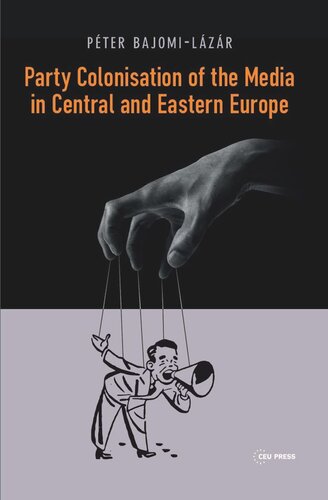

Most ebook files are in PDF format, so you can easily read them using various software such as Foxit Reader or directly on the Google Chrome browser.
Some ebook files are released by publishers in other formats such as .awz, .mobi, .epub, .fb2, etc. You may need to install specific software to read these formats on mobile/PC, such as Calibre.
Please read the tutorial at this link: https://ebookbell.com/faq
We offer FREE conversion to the popular formats you request; however, this may take some time. Therefore, right after payment, please email us, and we will try to provide the service as quickly as possible.
For some exceptional file formats or broken links (if any), please refrain from opening any disputes. Instead, email us first, and we will try to assist within a maximum of 6 hours.
EbookBell Team

5.0
38 reviewsThis book compares media and political systems in East-Central as well as in Western Europe in order to identify the reasons possibly responsible for the extensive and intensive party control over the media. This phenomenon is widely experienced in many of the former communist countries since the political transformation. The author argues that differences in media freedom and in the politicization of the news media are rooted in differences in party structures between old and new democracies, and, notably, the fact that young parties in the new members of the European Union are short of resources, which makes them more likely to take control of and to exploit media resources.